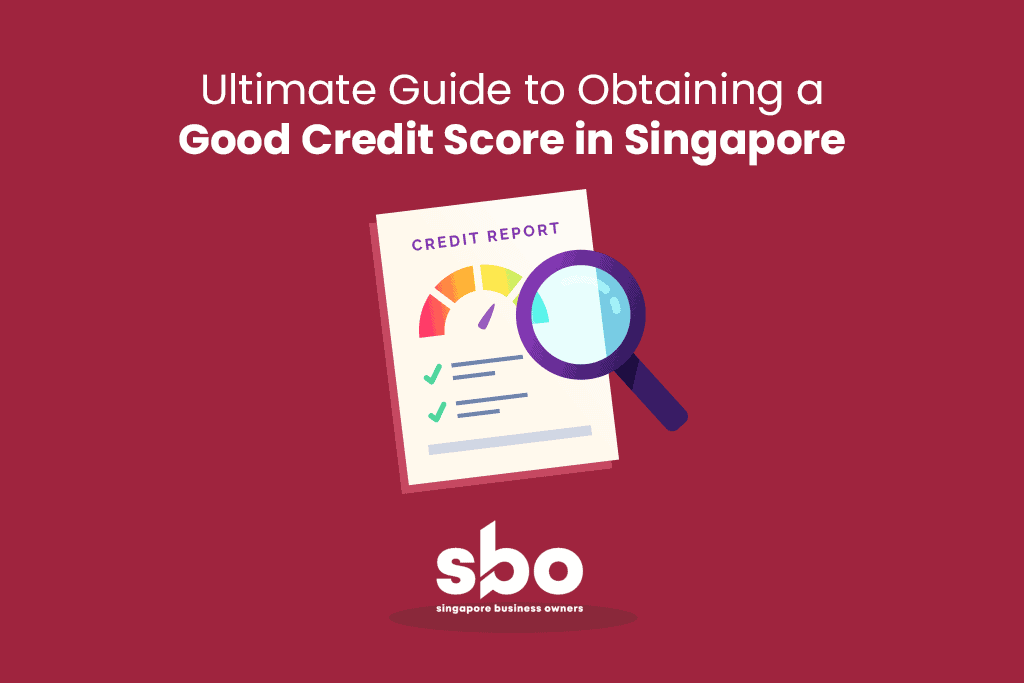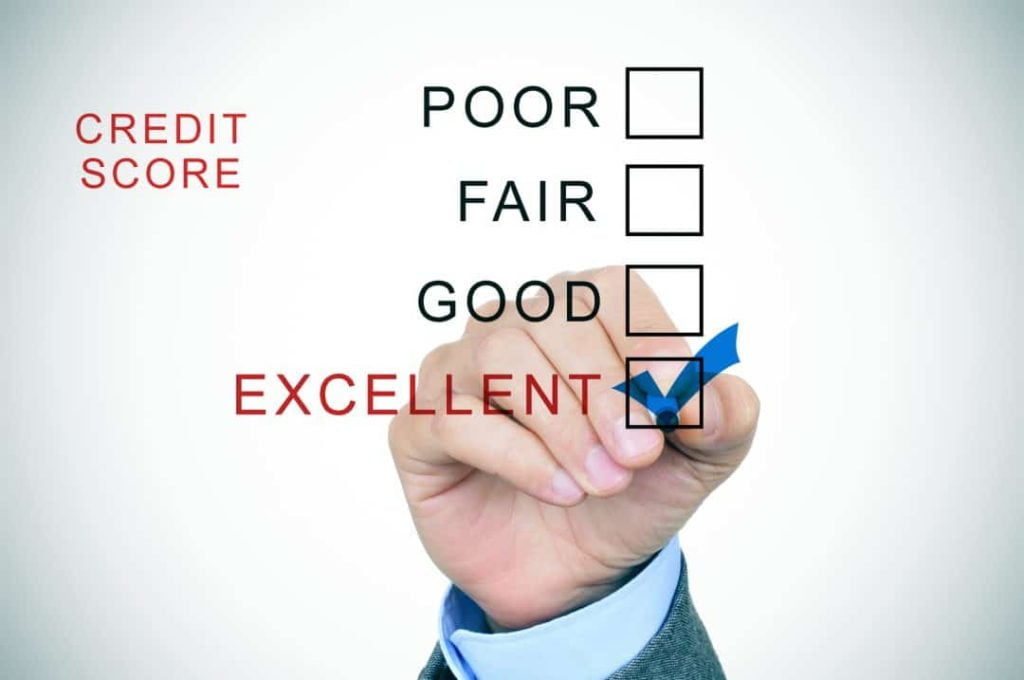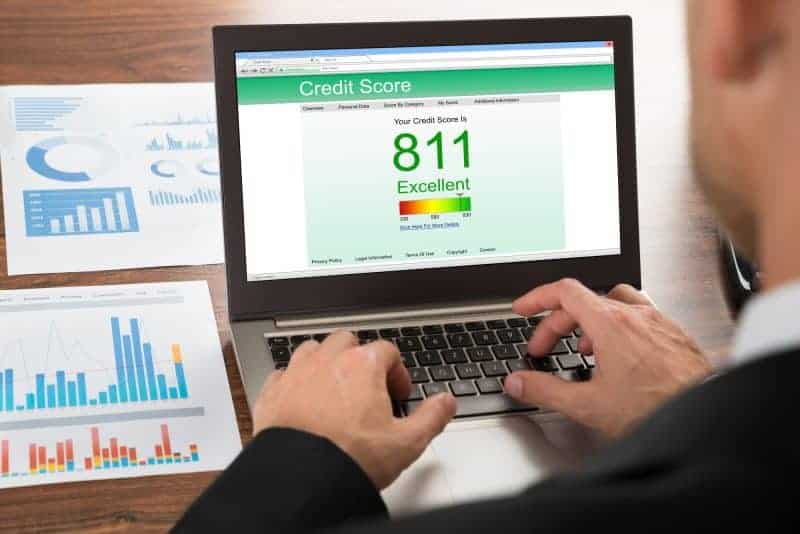How to get a Good Credit Score in Singapore?
When we’re not accustomed to taking loans, the concept of a credit score can easily be overlooked. However, this seemingly...

When we’re not accustomed to taking loans, the concept of a credit score can easily be overlooked. However, this seemingly simple four-digit number carries significant weight, acting as a crucial determinant of both personal and business financial health.
As a startup owner, understanding your credit score, how it’s calculated, and its far-reaching implications can significantly influence not just your ability to secure business loans and attract investors, but also your personal financial opportunities such as purchasing a home or securing a personal loan.
This article aims to shed light on the multifaceted nature of credit scores for Singapore’s startup owners, emphasizing their importance in both entrepreneurial and personal financial contexts.
What is a Credit Score?

A credit report is essentially a financial report card. It contains detailed records of your credit payment history consolidated from various credit providers. This document is instrumental to lenders in assessing your creditworthiness before they decide to extend credit facilities like personal loans to you.
1000 (HH) to 2000 (AA)
A CBS credit score, a four-digit number, offers a snapshot of your past payment history on your loan accounts. It’s a fluid number, fluctuating with changes in your credit information. A score closer to 2000 indicates robust financial health, while a score nearer to 1000 flags a higher risk of defaulting on payments.
Score Range | Credit Grade | Risk Grade | Probability of Default |
|---|---|---|---|
1911 – 2000 | AA | Low Risk | < 0.27% |
1844 – 1910 | BB | Low Risk | 0.27% – 0.67% |
1825 – 1843 | CC | Low Risk | 0.67% – 0.88% |
1813 – 1824 | DD | Medium Risk | 0.88% – 1.03% |
1782 – 1812 | EE | Medium Risk | 1.03% – 1.58% |
1755 – 1781 | FF | Medium Risk | 1.58% – 2.28% |
1724 – 1754 | GG | High Risk | 2.28% – 3.48% |
1000 – 1723 | HH | High Risk | > 3.48% |
How to check credit score?
You can find out your credit score by requesting an online report from Credit Bureau Singapore (CBS) at the cost of $8.00 (inclusive of GST). If you hae recently made an application for loan or credit facilities from bank, you can get it free within 30 days of your application.
Once ready, other than e-collection, you can opt to collect the physical documents at SingPost Branches Islandwide or Credit Bureau’s office at Shenton Way.
Now that you know how to obtain your credit score, here’s how the scoring system works in Singapore.

Pay Credit Card Bills on Time
If you ever missed a credit card bill payment, it will negatively affect your credit score in the long run. So the more you avoid paying your credit card bills, the longer your credit score will take to recover.
Thus, it’s important to pay your credit card bills on time. Not only it strengthens your credit score but helps you maintain a good credit rating. If you have multiple credit cards’ outstanding payments unpaid and have difficulties trying to pay off all the debts, do consider getting a debt consolidation loan for better management of finances.
Never Default on any loans
Failing to pay your monthly loan installments can significantly impact your credit report. Becoming a defaulter will be noted in your credit record, making it nearly impossible to obtain a line of credit, credit card, or loan in the future.
To avoid this, ensure you make all payments on time. If you’re struggling to meet your monthly payments, seek credit counseling to restructure your debt. Remember, defaulting on a loan can also lead to legal action if you have the means to pay but refuse to do so.
How to Improve Credit Score?

If your credit score has suffered due to late repayments and you’re looking to improve it, read on. There is no precise formula to predict how long it will take for your credit score to improve, as it depends on various factors.
Your credit score is calculated based on a 12-month rolling history of your account repayments. However, with discipline and patience, you can gradually improve your score. By making it a priority to pay all your dues on time over the next 12 months, you can effectively erase your bad credit history.
Consolidate your debts to Repair Ruined Credit Score
If you have a poor credit score, one of the most straightforward ways to repair it is by settling all existing loans with a single debt consolidation loan. Banks and legal moneylenders offer personal loans designed to help you rebuild your credit.
By consistently paying the monthly installments on your debt consolidation loan, your damaged credit score will gradually improve. If your current credit score is around BB or lower, consider applying for a personal loan first. This strategy can help you build a stronger credit history before moving on to larger loans such as home or car loans.
By the time you plan to apply for a larger loan, you could achieve a higher AA rating, making it easier to secure favorable terms.
The Importance of Credit Score in Singapore
Credit scores play a pivotal role in Singapore’s financial landscape. Whether you’re applying for a business loan, a new credit card, a renovation loan, or even a job, your credit score forms an integral part of the decision-making process.
Understanding your credit score is critical to maintaining your financial health. By taking the necessary steps to improve your score, you not only increase your chances of loan approval but also open doors to better financial opportunities in the future.
FAQS About Credit Score in Singapore
What is a credit score and why is it important?
A credit score is a numerical expression of a person’s creditworthiness, calculated based on their credit history. It’s used by lenders, such as banks and credit card companies, to evaluate the potential risk of lending money. For startup owners, a good credit score can increase the chances of obtaining business loans and better interest rates. For individuals, it can affect the ability to secure mortgages, personal loans, and even rental agreements.
How is a credit score calculated in Singapore?
The Credit Bureau of Singapore (CBS) calculates credit scores based on several factors such as payment history, the amount of credit owed, the length of credit history, types of credit in use, and new credit applications. The score ranges from 1000 to 2000, with a higher score indicating lower credit risk.
How can I improve my credit score?
There are several ways to improve your credit score. Paying bills and loan repayments on time, keeping credit balances low, not applying for credit frequently, maintaining a mix of credit types, and regularly reviewing your credit report for accuracy can all contribute to a higher score.
How can I check my credit score in Singapore?
In Singapore, you can obtain your credit report from the CBS. The report can be requested online, by mail, or in person at the CBS office. There is a nominal fee for obtaining your credit report.
Does my personal credit score affect my business credit score in Singapore?
While personal and business credit scores are usually separate, for small businesses and startups, lenders often consider the owner’s personal credit score especially when the business lacks a substantial credit history. Therefore, maintaining a good personal credit score can be crucial for business owners in Singapore.
Explore More Content
Table of Content

